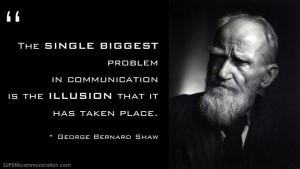It has been said that leadership is influence, nothing more and nothing less. Lord Montgomery implies this when he wrote that leadership is the capacity and will to rally men and women to a common purpose, and the character, which inspires confidence.
If you and I were to write a list of qualities or characteristics usually found among natural born leaders, our list might look something like this: 
- Persistence
- Enthusiasm
- Competitiveness
- Practicality
- Knowledge
- Discipline
- Integrity
- Aggressiveness
- Flexibility
So here is the million-dollar question: “Are these qualities necessary in spiritual leaders? Before you answer too quickly, I would refer you to some biblical illustrations that would have done quite poorly on a natural leadership test. The truth of the matter is that God chooses people that we would have looked over.
Consider the withdrawn, fearful, and doubting Moses (Exodus 3:10-4:14). Consider the uncultured, negative, ill prepared, unwanted dogmatic, clumsy fig-picker Amos! (Amos 7:10-17). Do not overlook the impulsive, shortsighted, boastful Apostle Peter who suffered from foot-in-mouth disease often.
Stop and consider a little phrase in the Old Testament that reads, “The eyes of the Lord move to and fro…” God is searching for men and women whose hearts are open to His touch. Beyond that fact I do not read about a list of characteristics. Consider the 400 indebted and unorganized malcontents that surrounded David in the cave of Adullam (1 Samuel 22:1-2). Many of these men would become the elite fighting soldiers for David.
If this fact were not true, let me assure you that if adults had written off a strong willed, aggressive hothead teenager – you would not be reading this blog post.








![quote-Ariel-Durant-a-great-civilization-is-not-conquered-from-within_thumb[1]](https://shepherdsadvantageinc.com/wp-content/uploads/2015/07/quote-Ariel-Durant-a-great-civilization-is-not-conquered-from-within_thumb1-300x173.png)